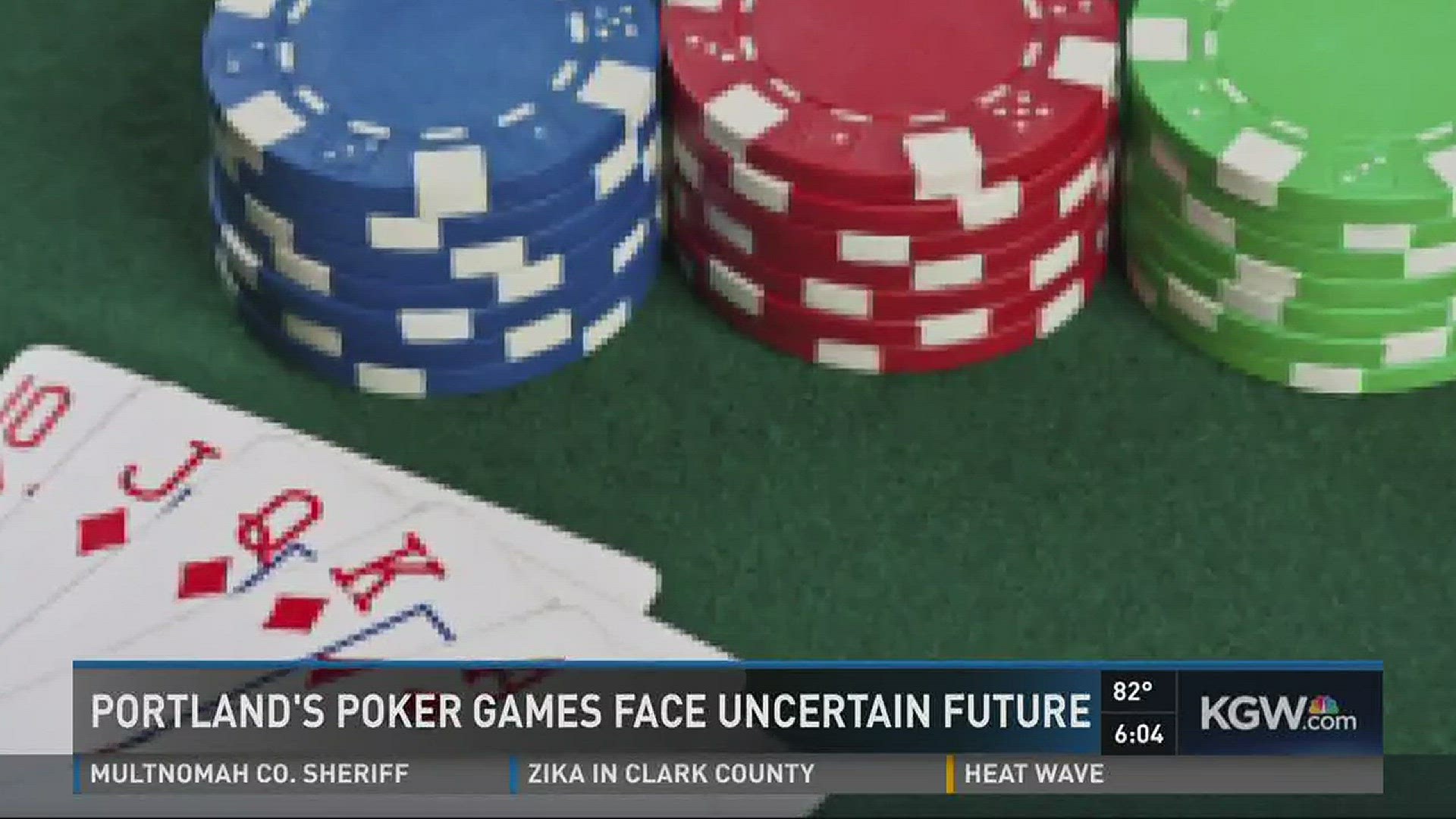PORTLAND, Ore. -- Take a look at the Facebook page for Portland Meadows’ poker tournaments.
It proudly shows their poker room.
There’s lots of information about tournaments too, with pots ranging from $500 to $10,000.
A Portland lawyer says it all illegal.

“The way they've been operating in Portland is entirely illegal under the Oregon state laws and the City of Portland code as well,” said Tom Rask, from the firm Kell, Alterman and Runstein.
Rask has fought social gaming in Portland for the past five years.
His clients operate card rooms in La Center, Washington. Gaming there is highly regulated.
They noticed a significant drop in business when Portland’s poker games took off.
His clients thought about opening card rooms in the city before being told by the Washington Gaming Commission that it would be illegal.
Rask couldn’t believe what he found when he looked into the Portland poker scene.
“The city of Portland has failed to enforce the code. And so games that started out in 2010 and 2011 as $1,000 games, $2,000 dollar games, have grown now to hundreds of thousands of dollars,” said Rask.
He's not kidding. The Portland Meadows Facebook page lists a tournament from May 21 to 28, with prize money totaling 200,000.
“The city has ignored this,” said Rask.
Portland does have laws regulating the poker games, also known as social gaming.
The rules stipulate the house or business cannot make money from the operation of the games. They can’t charge a cover charge for the games, and they can’t pay employees to run the tables.
Players can’t bet more than $1 a hand, and the winnings can’t exceed $1 multiplied by the number of players.
So how can Portland Meadows charge a $10 cover charge and have pots as big as $10,000?
Portland Meadows did not return KGW’s calls for comment.
Six years ago, the Oregon Attorney General's Office issued an opinion on the poker games that basically said dealers at poker tables cannot be paid.
So, clubs like Encore, also known as PDX Poker Club, declared their dealers to be volunteers.
But were the dealers really volunteers? The state labor bureau looked into the question and decided no.
“It’s clear that based on the facts with Encore, that our investigators showed a clear pattern, that the 59 poker dealers were workers and employees entitled to minimum wage and that's what we intend to prove in October,” said Charlie Burr, spokesman for the Oregon Bureau of Labor and Industries.
The state proposed fining Encore $59,000.
As a result, the City of Portland sent out a letter telling social gaming operations that there can be no volunteer dealer and that everyone playing has to take a turn dealing.
Two days later Encore, one of the city’s largest clubs, closed its doors.
Laura Salerno-Owens, a lawyer for Encore, said the owner simply followed the guidance of the city of Portland and that she will vigorously defend the company against the fines.
Another lawyer, Rachel O’Neal, said she is preparing a class action lawsuit on behalf of the dealers against Encore.
It all leaves Rask, the lawyer who fought to get the regulations enforced, shaking his head.
“This is an example of what happens when you have what should be a highly regulated industry, in a world where there is no regulation what so ever,” he said.
KGW asked the gambling regulators for the City of Portland for a sit down interview on camera. They refused.
Jen Clodius, a spokeswoman for the Office of Management and Finance, said the city typically inspects two to three social gaming businesses a month. But the city’s letter on volunteer dealers went out July 12th, 2016.
“As it happens, no inspections have been done since the letters were sent on July 12,” Cloduis wrote in an email.

